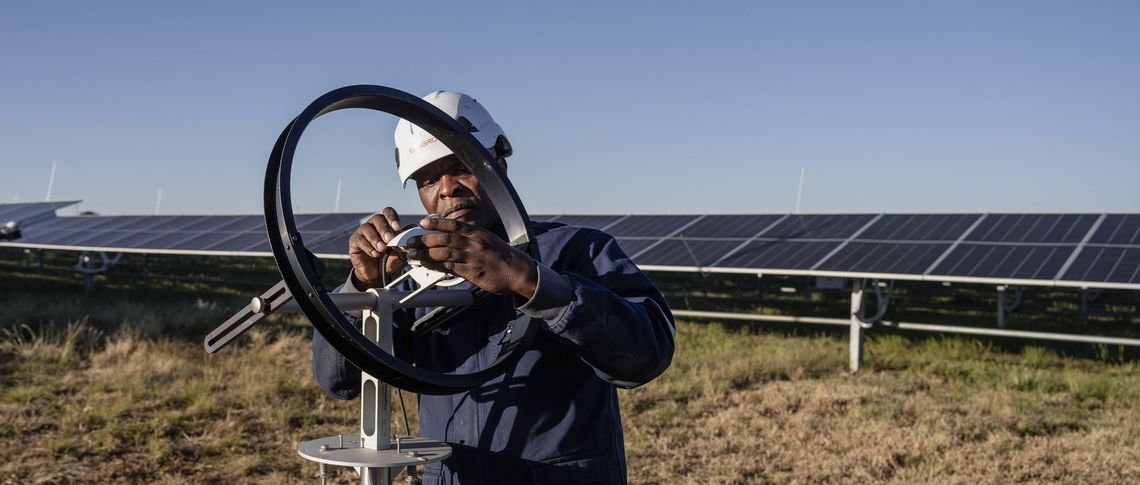As the world prepares for the upcoming COP30 in Belém, Brazil, a quiet revolution is taking shape across Africa, one that global leaders can no longer afford to ignore. From energy unions to feminist movements, a growing alliance of workers is redefining what a ‘just transition’ really means — and what it must never become. Because a just transition cannot be measured in megawatts alone; it must be judged by the dignity and livelihoods it protects.
At the heart of this movement lies a vision built on three interlocking principles: finance justice through climate grants rather than debt; public ownership of energy and transport systems for the benefit of people, not profit; and solidarity and sovereignty across the Global South to challenge the rules of the global economy. The message to global policymakers is clear: justice must be intentional, not incidental.
Reclaiming the meaning of transition
For years, the phrase ‘just transition’ has travelled easily through speeches and donor documents. Yet on the ground, many Africans see little justice. Governments set climate targets while closing factories, selling off utilities and cutting social budgets.
Across Africa, movements are now rightfully reclaiming the concept as a political struggle, not a marketing slogan. They remind us that a transition defined only by technical metrics or emission targets ignores the real question: who owns the change, and who benefits from it. A series of regional gatherings in 2025, from Dar es Salaam to Addis Ababa and Boksburg, has shaped a new African transition agenda based on a people-centred, decolonised framework. This agenda links climate action to sovereignty, democratic control and redistribution. It demands that workers and communities – not creditors or consultants – shape the transformation.
The starting point for this is money. While Africa contributes barely four per cent of global greenhouse emissions, it bears the heaviest losses from floods, droughts and heatwaves. Yet climate finance still arrives in the form of loans rather than grants, thereby further exacerbating the continent’s debt and climate crises. According to the United Nations Economic Commission for Africa (UNECA), African countries now spend three times more on debt repayments than on climate adaptation, a clear sign that current financing mechanisms deepen vulnerability rather than reduce it.
The new African transition agenda calls for public and community-driven energy systems — locally financed and democratically governed.
This traditional model of co-dependency has long outlived its legitimacy. It entrenches financial subservience and locks countries into endless repayment cycles, even as they confront escalating climate disasters. What’s needed instead is a new financial architecture built on justice: debt cancellation, reparations for historical emissions and public, grant-based funding for adaptation and low-carbon investment. Development banks must serve social mandates – by building schools, hospitals, and water and power systems – rather than de-risking private profit.
Finance must be work-centred: governments should tax extractive industries, halt illicit financial flows, and reinvest resource rents in decent jobs and social services. Success should be measured by secure livelihoods, not by investor returns.
A second demand is centred around the question of ownership. After decades of structural adjustment and unbundling, public infrastructure across the continent is fragile. Energy and transport liberalisation promised efficiency but often delivered blackouts, job losses and rising tariffs instead. For example, current reforms in the South African energy sector – which empower more independent power producers (IPPs) – can create additional uncertainties and threats to a just transition if not properly planned and managed.
The new African transition agenda rejects this logic. It calls for public and community-driven energy systems — locally financed and democratically governed. National utilities must be rebuilt, harmful concessions reversed and renewable projects funded through public financing rather than new debt. This public-pathway vision must link decarbonisation to the industrialisation agenda, promoting the expansion of public transport and the electrification of local manufacturing, while ensuring that every community has access to affordable power.
Justice is not a policy add-on but the foundation of a liveable future.
Many workers across Africa also view the transition as an opportunity to transform employment — but only if their rights are safeguarded. Without such protections, the current pattern of ‘green restructuring’ has already left many miners, drivers and municipal employees jobless. This is why trade-union proposals emphasise income guarantees, retraining programmes and universal social protection. They also demand that informal and platform workers – often women and youth – be included in labour negotiations.
Across meetings, one common refrain is heard again and again: a transition that destroys jobs cannot be called just. The broader ambition must be a new social contract linking wages, welfare and environmental sustainability. Public funds should ensure that no worker or community is abandoned when polluting industries close.
Women are central to this vision. They shoulder the unpaid labour that sustains households through droughts, displacement and energy poverty, yet remain marginal in decision-making.
This is why the emerging African framework places gender equality and care work at the heart of climate policy, demanding gender-transformative budgeting, women’s leadership at all levels and investment in public care infrastructure. This extends to women living in rural areas, people with disabilities and youth — those most excluded from the digital and green economies.
By embedding intersectional justice, African workers are redefining climate policy as social transformation, not technical management. This people-centred lens also reveals what global climate governance too often hides: that justice is not a policy add-on but the foundation of a liveable future.
From extractivism to sovereignty
Africa’s abundance of cobalt, lithium and manganese, essential for electric vehicles and batteries, is both an opportunity and a threat. Without new governance, the mineral boom could reproduce the same exploitative patterns as fossil capitalism.
For this reason, labour movements are also pushing for an African Minerals Pact: regional coordination, beneficiation and technology transfer to create jobs rather than export raw materials. The goal is sovereignty, controlling resources to finance public investment and regional industrialisation. While few African heads of state have formally adopted these positions, labour and civil society networks are pressing for them to shape the continent’s common stance at COP30 and beyond. This agenda reframes ‘critical minerals’ as public goods, not commodities for external supply chains.
These domestic struggles are also connected to the global stage. Trade measures like the EU’s Carbon Border Adjustment Mechanism, which taxes carbon-intensive imports, are widely seen as ‘climate-debt colonialism’, punishing developing economies for historical emissions they did not cause.
As delegates prepare for COP30, African labour movements aren’t just issuing demands — they are putting forward a vision for a truly just transition.
Rather than resorting to protectionism, the new African transition agenda proposes cooperation based on fair trade, technology sharing and South–South cooperation. By aligning with Asia and Latin America, the continent seeks greater leverage to negotiate new financial rules and resist austerity. This is not a plea for charity. It is a call for a new internationalism, linking climate justice to economic democracy and liberation struggles worldwide.
The Global North’s own green agenda from Brussels to Washington depends on African minerals, labour and ecosystems. Yet policies shaped in Brussels or Berlin often treat Africa as a supplier of raw materials rather than a partner in development.
By listening to Africa’s workers, Europe could avoid repeating colonial mistakes. Debt relief, fair pricing for minerals and support for public infrastructure would strengthen both continents. A genuine partnership would measure success by shared well-being, not profit margins. For global policymakers, the warning from Africa is clear: green growth without justice is just another enclosure.
As delegates prepare for COP30, African labour movements aren’t just issuing demands — they are putting forward a vision for a truly just transition. By redefining climate policy as a struggle for democracy, dignity and equality, Africa’s workers remind the world that the future will be public and people-owned — or it will not be just at all.







